Panels
Participate in a conversation with experts about important areas affecting physicians scientists
Team Based Science
The past several decades have witnessed a dramatic increase in the scale and complexity of scientific and translational research. As the complexity of today’s most pressing health issues and diseases is revealed, collaborations among scientists trained in different fields, from bioinformatics to molecular genetics to biomedical policy, have become essential for exploring and advancing biomedical research discoveries. Given their dual training in medicine and scientific research, physician-scientists are poised to lead team science and the multidisciplinary research initiatives. Our session aims to answer: What constitutes successful team science? What are examples physician-scientists have used in their research endeavors to promote team science productivity? Why do some research teams succeed while others do not? What factors maximize a research team’s productivity or effectiveness? What detracts from team science success?
- Schedule: Saturday, April 22, 6:00 pm – 7:00 pm
- Location: Crystal Room
Participants

Lillian Zhang, BS (Moderator), University of California, Davis
Lillian received her BS in Microbiology, Immunology, and Molecular Genetics with a minor in Biomedical Research from the University of California, Los Angeles (UCLA). As an undergraduate student, Lillian conducted research in the lab of Dr. Hong Wu and Dr. Xin Liu where she studied the role of delta-catenin in the pathogenesis of Alzheimer’s disease. Following this, Lillian worked as a research assistant in the lab of Dr. Irving Weissman at Stanford University where she was developing a novel model for studying bone metastatic cancers. Before beginning her graduate studies, Lillian also worked as a research assistant in the lab of Dr. Seung Kim at Stanford University where she studied skin aging and development. Currently, Lillian is in the MD-PhD program at the University of California, Davis School of Medicine and is training in the lab of Dr. Andreas Baumler. Lillian’s current research focus is on examining the genetic differences between Salmonella Typhimurium and Salmonella Typhi that contribute to their abilities to cause gastroenteritis and typhoid fever respectively.
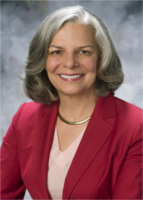
Julie Gerberding, MD, MPH, Executive Vice President & Chief Patient Officer of Strategic Communications, Global Public Policy, & Population Health
Dr. Julie Gerberding is Executive Vice President and Chief Patient Officer, Strategic Communications, Global Public Policy, and Population Health at Merck & Co., Inc., where she also has responsibility for the “Merck for Mothers” global program to prevent maternal mortality and the Merck Foundation. She joined Merck in January 2010 as president of Merck Vaccines and led efforts to make the company’s vaccines more available and affordable to people in resource-limited countries around the world.
She left her tenured faculty position at the University of California, San Francisco in 1998 to lead the U.S. Centers for Disease Control and Prevention (CDC) Division of Healthcare Quality Promotion and then served as the CDC Director from 2002 to 2009. As director, she led the CDC through more than 40 emergency responses to public health crises, including anthrax bioterrorism, SARS, and natural disasters. She also advised governments around the world on urgent issues such as pandemic preparedness, AIDS, antimicrobial resistance, tobacco, and cancer.
Dr. Gerberding currently serves on the Boards of CWRU, National Association of City and County Health Officials (NACCHO) Foundation, MSD Wellcome Trust Hilleman Laboratories, and the BIO Executive Committee. She has received more than 50 awards and honors, including the United States Department of Health and Human Services (DHHS) Distinguished Service Award for her leadership in responses to anthrax bioterrorism and the September 11, 2001 attacks. She was named to Forbes Magazine's 100 Most Powerful Women in the World in 2005 through 2008 and to TIME Magazine's 100 Most Influential People in the World in 2004.
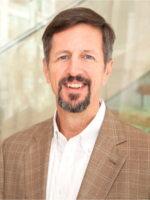
Eric Svensson, MD, PhD, Novartis Institutes of Biomedical Research
Dr. Svensson is a physician-scientist who is currently a director at the Novartis Institutes of Biomedical Research (NIBR) based in Cambridge, MA. Dr. Svensson obtained his MD/PhD degree from the UCLA School of Medicine. He moved to the University of Chicago for his internal medicine residency training, cardiology fellowship, and a post-doctoral research fellowship in cardiovascular gene therapy and cardiac development. He subsequently became a faculty member in the Section of Cardiology at the University of Chicago where he specialzed in the care of adults with congenital heart disease. He also ran a basic research laboratory focused on elucidating the molecular mechanisms regulating cardiac development. While at the University of Chicago, Dr. Svensson established and directed the Physician-Scientist Development Program, a program designed to provide further clinical and research training to graduates of MD/PhD programs.
Dr. Svensson joined the Translational Medicine department in NIBR in late 2012. At NIBR, he works with teams of basic researchers and clinical scientists to transition promising cardiovascular therapeutics from the lab into phase 1 and phase 2 clinical trials.
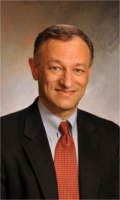
David Meltzer, MD, PhD, University of Chicago
David Meltzer, MD, PhD, is Chief of the Section of Hospital Medicine, Director of the Center for Health and the Social Sciences and the UChicago Urban Health Lab, and Chair of the Committee on Clinical and Translational Science at The University of Chicago, where he is The Fanny L. Pritzker Professor in the Department of Medicine, the Harris School of Public Policy Studies and the Department of Economics. Meltzer’s research explores problems in health economics and public policy with a focus on the theoretical foundations of medical cost-effectiveness analysis and the cost and quality of hospital care. He currently leads a CMMI Challenge award to study the effects of improved continuity in the doctor-patient relationship between the inpatient and outpatient setting on the costs and outcomes of care for frequently hospitalized Medicare patients. He helped lead the CTSA-funded Chicago Learning Effectiveness Advancement Research Network (Chicago LEARN) and the PCORI-funded Chicago Area Patient Centered Outcomes Research Network (CAPriCORN). Meltzer completed his MD and PhD in economics at the University of Chicago and his residency in internal medicine at Brigham and Women’s Hospital. His awards include the Garfield Award from Research America, the AHRQ Eisenberg Excellence in Mentoring Award, and the AAMC Learning Healthcare System Award. He is a member of the National Academy of Medicine.
Work/Life Balance
This panel will discuss how to balance work responsibilities and career building with aspects of social and family life in the context of a physician-scientist lifestyle.
- Schedule: Sunday, April 23, 10:00 am – 11:00 am
- Location: Gold Room
Participants
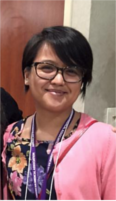
Michelle Caunca, BS (Moderator), MD/PhD Student at University of Miami Miller School of Medicine
Ms. Caunca received her B.S. in Neurobiology with a minor in Psychology at the University of California, Irvine (UCI), graduating cum laude with Honors in Biological Sciences and Campuswide Honors. She worked in the The 90+ Study at UCI under the mentorship of Claudia H. Kawas, MD, and Maria Corrada, ScD. Currently, she works with Clinton Wright, MD, MS and Tatjana Rundek, MD, PhD in the Northern Manhattan Study at the University of Miami Miller School of Medicine. She currently studies brain MRI metrics of white and gray matter integrity and their relation to cognition in an older, mostly Hispanic/Latino cohort. She aspires to become a physician-scientist specializing in neuroepidemiology and cognitive aging.
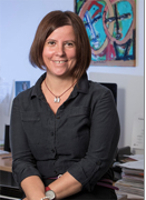
Alessia Fornoni, MD, PhD, Director and Chair, Peggy and Harold Katz Family Drug Discovery Center
Dr. Alessia Fornoni obtained her MD and her PhD degree in Medical Pharmacology at the Universita' degli Studi di Pavia (Italy). She later joined the laboratory of Renal Cell Biology (Vascular Biology Institute) at the University of Miami, where she worked on animal models of diabetic nephropathy and on the role of mesangial stem cells progenitors under the direct supervision of Drs. Liliane and Gary Striker. After her post-doctoral fellowship, Dr. Fornoni completed the Internal Medicine and Nephrology training at the University of Miami (Basic Scientist Investigator pathway). She is Board Certified in both Internal Medicine and Nephrology. She currently devotes 75% of her time to research and 25% to patient care. Dr. Fornoni’s research interest is focused on proteinuria and kidney diseases, with particular interest in diabetic nephropathy and focal and segmental gloemrulosclerosis. Dr. Fornoni is currently interested in the intracellular signaling pathways modulated by intracellular lipids. Dr. Fornoni research goal is to translate her basic science findings into clinical research through the identification of new therapeutic targets for chronic kidney disease.
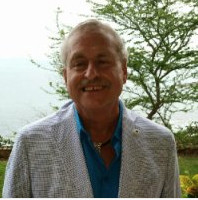
David Ostrow, MD, PhD, DavidOstrowConsulting, David Ostrow & Associates, LLC
During his training in the MD/PhD Program at the University of Chicago, Dr. David Ostrow co-founded the first gay community health center, now the Howard Brown Health Center of Chicago. There he identified Hepatitis B as a common sexually transmitted infection (STI) among gay men, which led to his Chicago PI role in the CDC-funded Hep B Epidemiology and Vaccine Efficacy Studies (1976-81). As the founding PI of the subsequent Chicago MACS (1983-1985), then co-PI of the Coping & Change Study of Men in the Chicago MACS (1985-1999), and later founder of the Behavioral Working Group (BWG) of the MACS (1991-2011), he focussed on the relationship between sexual behavior, drug use and the evolution of HIV transmission and prevention among drug using MSM. He has published 175 peer-reviewed papers, 50+ book chapters and presented 60+ times at International AIDS Conferences. He is an Investigator or consultant on most of the NIDA funded studies of drugs, alcohol and HIV in the MACS, including his own study of the Social and Risk Networks Assessment of younger Black MSM (2009-2011). This study led to a recently funded study of the dynamic roles of social and risk networks as drivers of the increasing epidemic of new HIV infections among younger Black MSM in Chicago. As the senior behavioral investigator in the MACS, he plans to use the upcoming open recruitment of men at highest risk of or recently infected with HIV to extend these studies to the geographically and racially diverse cohort of HIV+ and HIV- men.
Since the late ‘90s, Dr. Ostrow has been active in the movement to change failed national drug policies, such as cannabis prohibition, with more effective and compassionate policies, including regulation and legalization of cannabis use, integration of Cannabinoid Medicine training into the Medical Student curriculum, and the formation of a Community-Based Clinical Cannabis Research Network that can inform scientifically based MC treatment guidelines.

Karen Sibert, MD, aPennedPoint Blog Author and Anesthesiologist at UCLA
Born and raised in Amarillo, Texas in the 1960s, Karen was accepted to Princeton as part of the school’s second entering class of female students. She graduated with an English degree and became a reporter for the Wall Street Journal. She later applied and was accepted to Baylor College of Medicine. After choosing to specialize in anesthesiology, Karen completed her residency training and fellowship in anesthesiology at the Yale University Hospital in New Haven, Connecticut. She then joined the faculty at Duke University School of Medicine. Since 1999, Karen has worked in Los Angeles as a clinical anesthesiologist and an Associate Professor of Anesthesiology, teaching residents and fellows in training. She hasn’t let that get in the way of her writing career. Besides authoring aPennedPoint blog, Karen was recently published in The New York Times and is a regular contributor to the CSA Bulletin. Karen’s name also frequently appears as an author of articles in medical journals and chapters in both medical and general interest books. She practices full time, specializing in anesthesia for thoracic surgery and other high-risk adult cases.
The Dos and Don'ts of MSTP Admissions
Come visit with the MSTP directors to learn about how you can become a competitive applicant. The application process can be daunting so this is a great opportunity to be able to ask your questions directly to those with the inside scoop.
- Schedule: Sunday, April 23, 11:00 am – 12:00 pm
- Location: Embassy Room
Participants

Lillian Zhang, BS (Moderator), University of California, Davis School
Lillian received her BS in Microbiology, Immunology, and Molecular Genetics with a minor in Biomedical Research from the University of California, Los Angeles (UCLA). As an undergraduate student, Lillian conducted research in the lab of Dr. Hong Wu and Dr. Xin Liu where she studied the role of delta-catenin in the pathogenesis of Alzheimer’s disease. Following this, Lillian worked as a research assistant in the lab of Dr. Irving Weissman at Stanford University where she was developing a novel model for studying bone metastatic cancers. Before beginning her graduate studies, Lillian also worked as a research assistant in the lab of Dr. Seung Kim at Stanford University where she studied skin aging and development. Currently, Lillian is in the MD-PhD program at the University of California, Davis School of Medicine and is training in the lab of Dr. Andreas Baumler. Lillian’s current research focus is on examining the genetic differences between Salmonella Typhimurium and Salmonella Typhi that contribute to their abilities to cause gastroenteritis and typhoid fever respectively.
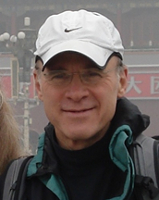
Lawrence (Skip) Brass, MD, PhD, University of Pennsylvania
Lawrence (Skip) Brass, MD PhD is a graduate of Harvard College and Case Western Reserve University, where he received his MD and a PhD in biochemistry. After residency training in internal medicine he became a fellow in Hematology-Oncology at the University of Pennsylvania where he served as Vice Chair for Research in the Department of Medicine from 2004 to 2007, and is currently Professor of Medicine and Professor of Systems Pharmacology and Translational Therapeutics. He has led the NHLBI-funded Hematology Research Training Program since 1994. Dr. Brass became Associate Dean for Combined Degree and Physician Scholars Programs and Director of Penn’s MSTP in 1998. He has been active at the national level in the development of training programs for physician-scientists, has served as President of the National Association of MD-PhD Programs, Chair of the AAMC GREAT section on MD-PhD training, was a member of the NIH Physician-Scientist Workforce advisory group in 2013-2014, and has traveled throughout the U.S. and Canada to speak about physician-scientist training and act as a reviewer and advisor on MD/PhD programs in particular. He is also a practicing hematologist whose research interests are in the fields of hemostasis and vascular biology. He has been continuously funded by the NIH HLBI since the mid-1980’s, has been elected to membership in the American Society for Clinical Investigation and the Association of American Physicians, was an Established Investigator of the American Heart Association and is a recipient of the Distinguished Career Award from the International Society of Hemostasis and Thrombosis, the Christian R. and Mary F. Lindback Award for Distinguished Teaching from the University of Pennsylvania, the inaugural Bert Shapiro Award for Leadership, Dedication and Service to the Physician-Scientist Community from the National Association of MD/PhD Programs, and numerous teaching awards from students at the Perelman School of Medicine.
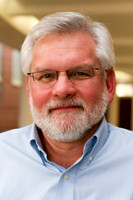
M. Kerry O’Banion, MD, PhD, University of Rochester School of Medicine & Dentistry
M. Kerry O’Banion, MD, PhD, Professor and Vice-Chair of Neuroscience and Professor of Neurology at the University of Rochester School of Medicine & Dentistry. He trained in the Medical Scholars Program at the University of Illinois at Urbana-Champaign, receiving his MD and PhD and being named to the AOA National Medical Honor Society in 1987. Originally trained as a molecular virologist, Dr. O’Banion has devoted the past 25 years to understanding the role of neuroinflammation in acute and degenerative brain disease and is an international leader in the fields of Alzheimer’s disease and CNS radiation injury. His original discovery that cyclooxygenase-2 plays a major role in inflammation fueled the development of several important new drugs, the COX 2 inhibitors (e.g. Celebrex®).
Dr. O'Banion currently directs the Medical Scientist Training Program (MSTP) at the University of Rochester, a position held since 2000. Dr. O’Banion was Chair of the MD-PhD Section of the Association of American Medical Colleges’ Graduate Research, Education, and Training (GREAT) Group in 2009-2010, and currently serves on the American Physician-Scientists Association (APSA) Board of Directors.
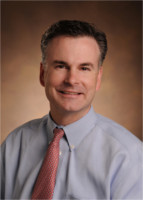
Christopher S. Williams, MD, PhD, Vanderbilt University Medical Center
Dr. William is the Associate Dean for Physician-Scientist Education and Training and Associate Professor of Medicine, Gastroenterology, and Cancer Biology, and Staff Gastroenterologist at the Nashville VAMC, and the current director of both the Medical Scientist & Physician-Scientist Training Programs at Vanderbilt University. His clinical interests are in the management of inflammatory bowel disease and the prevention of IBD related complications, specifically colitis-associate carcinoma. His research program is focused on intestinal injury response/repair programs with the goal of understanding how these epithelial integrity programs are perturbed in the pathogenesis of IBD and more importantly in the progression to malignancy with the overarching goal of identifying novel therapeutic targets or biomarkers in these disease. Dr. Williams received his undergraduate degree from Brigham Young University before matriculating to Vanderbilt University as an MSTP student. He was selected for the ABIM Research Pathway Residency and received sub-specialty training in Gastroenterology. He joined the Vanderbilt faculty in 2007. His research program has been supported by the American Cancer Society, the VICC Young Ambassadors, the NIH (NIDDK), the Veterans Administration, and the Crohn’s and Colitis Foundation of America (CCFA). He is currently involved in MSTP/PSTP integration strategies with the AAMC and AAIM.
Transitioning
Mirroring the shift from medical to graduate school, the return to and finishing of medical school prompts medical scientist trainees to address one glaring challenge: starting the next chapter of our professional lives. The purpose of this panel is to enlighten audience members on how to smoothly navigate the often-stressful and seemingly complicated process of transitioning from the later phase of the physician-scientist curriculum towards your own, personal career trajectory. Consisting of a 4th year medical student, PSTP residency director, and resident/fellow on the panel, the intention is to open the entire room up for discussion. Though the focus is on transitions, all topics are highly encouraged for debate, ranging from questions about the traditional academic sequence (e.g., residency, interviewing, match, fellowship, etc.) to the more provocative consideration of non-academic career paths.
- Schedule: Sunday, April 23, 11:00 am – 12:00 pm
- Location: Gold Room
Participants
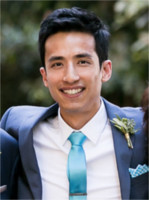
Jason J. Siu, BS, BA (moderator), MD/PhD Student at Ohio State University
Born in Monterey Park, CA, Jason shuttled between Texas and California before ultimately settling in Waco, TX. He has spent half of his life thus far in the Lone Star State, attending Rice University in Houston and graduating with degrees in Economics and Biochemistry. His interest in the brain did not develop until after college, while reading neurosurgical nonfiction and auditing neuroscience courses. Subsequently, he found employment at UCSF under the tutelage of neural stem cell biologist Dr. Daniel Lim, MD, PhD, who fostered his interest in biology and medicine and led him to matriculate at the Ohio State University’s MSTP. He is currently mentored by Dr. Lei Cao, PhD. The Cao lab is mainly interested in environmental influence on the brain. Research focuses on how the brain plays a key role in responding to various environmental stress and subsequently modulating behavior, peripheral cancers, and metabolism. Jason’s thesis work particularly focuses on translating molecular findings of environmental enrichment into a tractable, CNS-targeted gene therapy for the most common monogenic obesity. Besides APSA, Jason is involved in mentoring undergraduates, neuroscience education and outreach, and volunteering in the Columbus community. With the above activities, he hopes to integrate his interests in psychoneuroendocrinology, molecular biology, and gene therapy into a fulfilling future clinician-scientist career while setting aside time towards personal environmental enrichment.

Steven D. Freedman MD, PhD, Harvard Medical School
Steven D. Freedman M.D., Ph.D. is Director of the Pancreas Center at Beth Israel Deaconess Medical Center, Chief of the Division of Translational Research, and Professor of Medicine at Harvard Medical School, Boston, Massachusetts. He received his Ph.D. from Yale University School of Medicine in 1981 followed by the M.D. degree at the University of Connecticut in 1986. He completed his residency and fellowship in Gastroenterology at Beth Israel Hospital and has remained on faculty since 1991. He is an internationally recognized leader exocrine pancreatic disease with a particular focus on pancreatitis and cystic fibrosis with an extensive research program that encompasses both basic science discovery as well as clinical trials.
Dr. Freedman was recently elected as the Section Vice Chair position of the Pancreatic Disorders (PAN) Section of the AGA Institute Council. He has an extensive track record on training the next generation of physician-scientists. Furthermore, with the support of the Cystic Fibrosis Foundation, Dr. Freedman has developed and launched a national initiative to train pediatric and adult gastroenterologists across North America in the diagnosis and treatment of the GI manifestations of CF. Recently, he has extended his training initiatives to now include his recent appointment as Director of the Beth Israel Deaconess Medical Center Internal Medicine Residency Physician-Scientist Track.
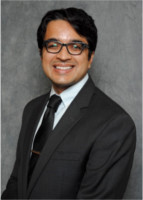
Neelroop (Neel) Parikshak MD, PhD, University of California, Los Angeles
Neelroop (Neel) Parikshak was born in Ahmedabad, India. While he was in elementary school, his family moved throughout the midwest and ultimately settled in West Virginia. Through grade school, Neel developed a love for math and science and first became interested in the neurosciences around the end of high school, when he experienced a few months of facial paralysis from Bells Palsy. He next attended college at Rice University, where he majored in Mathematics and Biochemistry and found that he enjoyed both neuroscience and medicine. Unable to decide between the two career routes, he joined the MD/PhD program at UCLA and completed his thesis work in the laboratory of Daniel H. Geschwind. His work focused on the genomics of neuropsychiatric disorders, with a particular emphasis on genes and pathways affected in autism spectrum disorder. He is generally interested in applying genomics, bioinformatics, and molecular biology approaches to dissect the etiology of complex diseases and identify data-driven therapeutic targets. He will be starting a Neurology residency program this summer and plans to continue pursuing his research interests. If all goes as planned, he hopes to be juggling clinical work, running a lab, and having a happy family life at home before he gets too many more grey hairs.

Huizi Chen, MD, PhD, Ohio State University
Huizi was born in Shanghai and lived in China until the age of ten. She moved to Lund, Sweden, where her father completed his graduate studies in the Department of Medicine at the University of Lund. After two years, the family uprooted again, this time across the Atlantic Ocean to Shreveport, Louisiana, where Huizi cultivated a love for Creole and Cajun cooking. Her family currently resides in Columbus, Ohio. In 2005, Huizi received her B.A. in Molecular and Cellular Biology from the College of Arts and Sciences at Cornell University in Ithaca, New York. As an undergraduate student, she performed research with Dr. Robert Weiss studying the role of Hus1 protein in cell cycle arrest in response to DNA damage. After college, she came back to Columbus to attend OSU to begin her training as a physician-scientist. She performed her graduate studies in the laboratory of Dr. Gustavo Leone from 2007-2011 and defended her Ph.D. thesis in August 2011 entitled “Atypical E2Fs link mammalian endocycle control to cancer.” In May 2013, Huizi graduated from MSTP and matched with the Internal Medicine PSTP Residency program at OSU. She completed her residency in 2015 and is board certified in Internal Medicine. Huizi is currently a second year fellow in the Division of Medical Oncology and performs her research under the mentorship of Dr. Sameek Roychowdhury. Her work focuses on translational genomics, the utilization of research autopsy to dissect tumor heterogeneity, and generating patient-derived xenograft models to identify mechanisms of acquired drug resistance as well as to facilitate development of new therapies for advanced cancer.
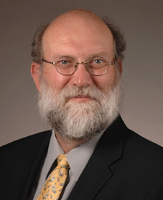
Peter Preusch, PhD, National Institute of General Medical Sciences
Peter C. Preusch, Ph.D., National Institute of General Medical Sciences, NIH, Bethesda, MD. Dr. Preusch is Acting Director of the Division of Cell Biology and Biophysics, NIGMS, NIH, DHHS. He has been with the NIH since 1990, serving first as a review administrator in DRG (CSR), then as a program director and later as the biophysics branch chief at NIGMS. He has handled many kinds of grant mechanisms and written many Funding Opportunity Announcements. He has managed fellowship and training grants in the Pharmacological Sciences, Cell and Molecular Biology, and the Medical Scientist Training Program; and in 2006 served as the Acting NIH Training Officer in the Office of the Director, NIH. He helped launch the K9/R00 grant program and has contributed to implementing the recommendations of the Physician-Scientists Workforce Working Group of the Advisory Committee to the Director, NIH. He served many years as the NIGMS point of contact for the Small Business Research Grant Programs. Most recently he has been leading implementation of the Maximizing Investigators’ Research Award (MIRA) program.
He received his B.S. in biochemistry from Pennsylvania State University in 1974 and his Ph.D. biochemistry with a minor in chemical engineering from Cornell University in 1979. He was a postdoctoral fellow at the University of Wisconsin from 1979 to 1983. From 1983 to 1990, he was Assistant Professor of Chemistry at the University of Akron where he taught and conducted NIH funded research on the membrane bound enzymes of vitamin K metabolism and on the bio-reductive activation of anticancer drugs.